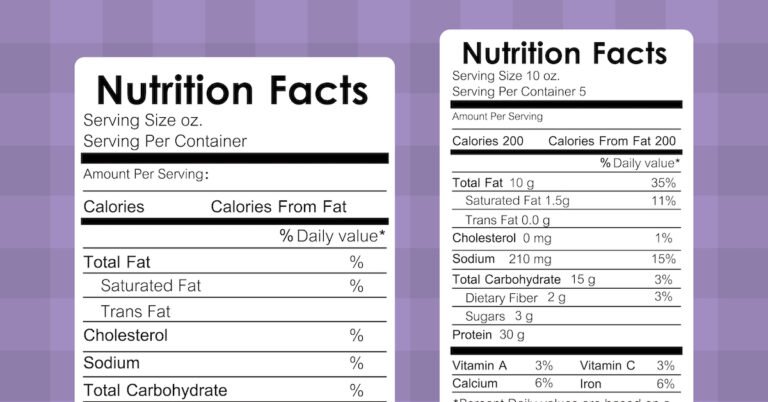Introduction
When it comes to keeping your dog healthy, nutrition is the real secret weapon. Beyond basic kibble, certain foods — known as “superfoods” — pack a nutritional punch that supports everything from immunity and digestion to coat shine and joint strength. These aren’t exotic or expensive; many are simple, natural ingredients you can easily add to your dog’s diet for an extra boost of vitality.
What Makes a Food “Super”?
Superfoods are nutrient-dense ingredients that deliver high levels of vitamins, minerals, antioxidants, and healthy fats in small amounts. For dogs, they help fight inflammation, improve digestion, strengthen bones, and even slow aging. Unlike supplements, these foods work synergistically with a balanced diet — enhancing overall wellness from the inside out.
1. Blueberries: The Antioxidant Powerhouse
Blueberries are tiny but mighty. Packed with antioxidants, vitamin C, and fiber, they protect your dog’s cells from oxidative stress — the same kind of damage linked to aging and disease. They’re also great for brain health and immune support.
- Benefits: Boost immune function, improve memory, support healthy aging.
- Serving: 2–4 berries for small dogs, 6–10 for large dogs; fresh or frozen (no added sugar).
- Pro Tip: Mix into kibble or freeze into summer treats with yogurt.
2. Salmon: A Source of Omega-3 Gold
Salmon is one of the best sources of Omega-3 fatty acids — essential fats that reduce inflammation, improve coat quality, and promote brain and joint health. It’s a top pick for dogs with itchy skin or seasonal allergies.
- Benefits: Reduces shedding, strengthens joints, and improves heart health.
- Serving: 1–3 tablespoons of cooked, boneless salmon per meal (depending on dog size).
- Pro Tip: Avoid raw salmon due to parasites; choose cooked or freeze-dried salmon treats.
3. Pumpkin: Digestive Hero
Pumpkin is every dog owner’s go-to for tummy troubles — and for good reason. Rich in fiber and beta-carotene (vitamin A), it supports digestion, regulates bowel movements, and promotes a healthy coat. It’s equally effective for constipation and mild diarrhea.
- Benefits: Aids digestion, boosts immunity, improves skin and coat.
- Serving: 1 tablespoon per 10 lbs of body weight; plain cooked or canned pumpkin (no sugar or spices).
- Pro Tip: Freeze pumpkin puree into ice cubes for a healthy, low-calorie snack.
4. Sweet Potatoes: Energy and Antioxidants in One
Sweet potatoes are one of the best carbohydrate sources for dogs — full of dietary fiber, vitamins A and C, and antioxidants. They provide steady energy while supporting gut health and vision.
- Benefits: Improves digestion, supports eye health, boosts immunity.
- Serving: 1–3 tablespoons of cooked mashed sweet potato per meal.
- Pro Tip: Bake thin slices for homemade dog chips — crunchy, nutritious, and irresistible.
5. Spinach: The Iron-Rich Green
Spinach is loaded with iron, vitamin K, and antioxidants. It helps maintain strong bones, supports red blood cell production, and strengthens immunity. While not every dog loves leafy greens, mixing them into meals can make a big difference.
- Benefits: Supports bone health, boosts circulation, and protects against inflammation.
- Serving: A few chopped, steamed leaves mixed into food once or twice a week.
- Pro Tip: Lightly steam or blanch spinach — raw spinach contains oxalic acid, which can block calcium absorption.
6. Eggs: Nature’s Perfect Protein
Eggs are one of the most complete sources of protein available — packed with amino acids, healthy fats, and vitamins. They’re great for muscle growth, shiny coats, and post-activity recovery.
- Benefits: Supports muscle repair, promotes coat shine, aids in weight management.
- Serving: 1 egg per day for large dogs, ½ for small dogs; cooked only (avoid raw eggs).
- Pro Tip: Add scrambled or boiled eggs to meals for a quick protein boost.
7. Carrots: Crunchy, Low-Calorie, and Great for Teeth
Carrots are rich in beta-carotene and fiber — a crunchy, satisfying treat that doubles as a natural toothbrush. They’re perfect for teething puppies or dogs needing low-fat snacks.
- Benefits: Improves dental health, boosts vision, and supports immune defense.
- Serving: Raw baby carrots or steamed slices; 1–2 for small dogs, up to 5 for large breeds.
- Pro Tip: Chill carrots in the fridge for teething puppies — it soothes gums and entertains.
8. Greek Yogurt: Gut-Friendly and Protein-Rich
Plain, unsweetened Greek yogurt is an excellent source of calcium and probiotics, which aid digestion and support a healthy gut microbiome. It’s particularly useful after antibiotics or digestive upset.
- Benefits: Supports gut health, strengthens bones, and boosts protein intake.
- Serving: 1 teaspoon for small dogs, 1–2 tablespoons for large dogs.
- Pro Tip: Always choose unsweetened yogurt with no artificial sweeteners — xylitol is toxic to dogs.
9. Sardines: Tiny Fish, Huge Benefits
Sardines are often overlooked, but they’re one of the healthiest superfoods you can give your dog. Packed with Omega-3s, calcium, and vitamin D, they support joint health, brain function, and heart performance.
- Benefits: Strengthens joints, supports cognition, and promotes heart health.
- Serving: 1 small sardine per 20 lbs of body weight, 2–3 times per week.
- Pro Tip: Choose sardines packed in water — never in oil or salt.
10. Turmeric: The Golden Anti-Inflammatory
Turmeric has been used for centuries for its anti-inflammatory and antioxidant properties. In dogs, it helps reduce arthritis pain, improve digestion, and boost overall immunity. Pairing turmeric with black pepper increases absorption dramatically.
- Benefits: Reduces joint pain, fights inflammation, supports liver function.
- Serving: ⅛ teaspoon per 10 lbs of body weight mixed with a small amount of coconut oil.
- Pro Tip: Mix into homemade treats or sprinkle lightly over food a few times a week.
How to Safely Introduce Superfoods
- Introduce one new food at a time to watch for allergies or sensitivities.
- Use small portions — even healthy foods can upset digestion if added too quickly.
- Avoid seasoning, salt, and oils unless recommended.
- Consult your vet if your dog has special dietary needs or conditions like pancreatitis.
Foods That Are Not Super (and Can Be Dangerous)
- Grapes and raisins — toxic to kidneys.
- Onions and garlic — can cause anemia.
- Chocolate and caffeine — heart and nervous system toxins.
- Avocado (in large amounts) — may cause digestive upset.
- Xylitol — an artificial sweetener that is deadly even in small doses.
Conclusion
Adding superfoods to your dog’s diet doesn’t mean overhauling everything — it’s about small, meaningful upgrades. A spoonful of pumpkin, a few blueberries, or a sprinkle of salmon oil can make a measurable difference over time. Think of it as nutritional enrichment — simple, natural ingredients that keep your dog’s body resilient, their mind sharp, and their tail wagging strong. Because a little “super” goes a long way when it comes to your best friend’s health.






